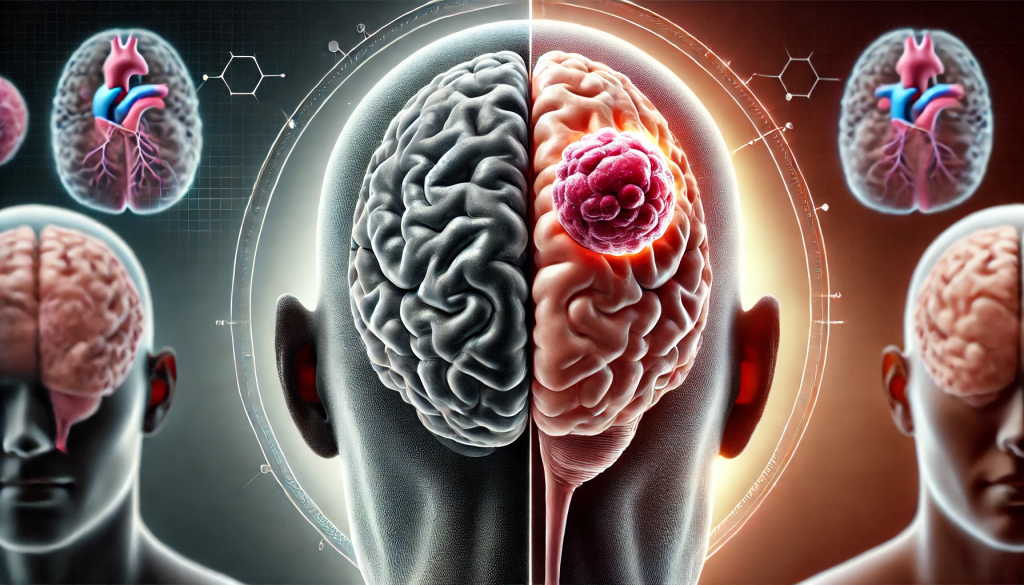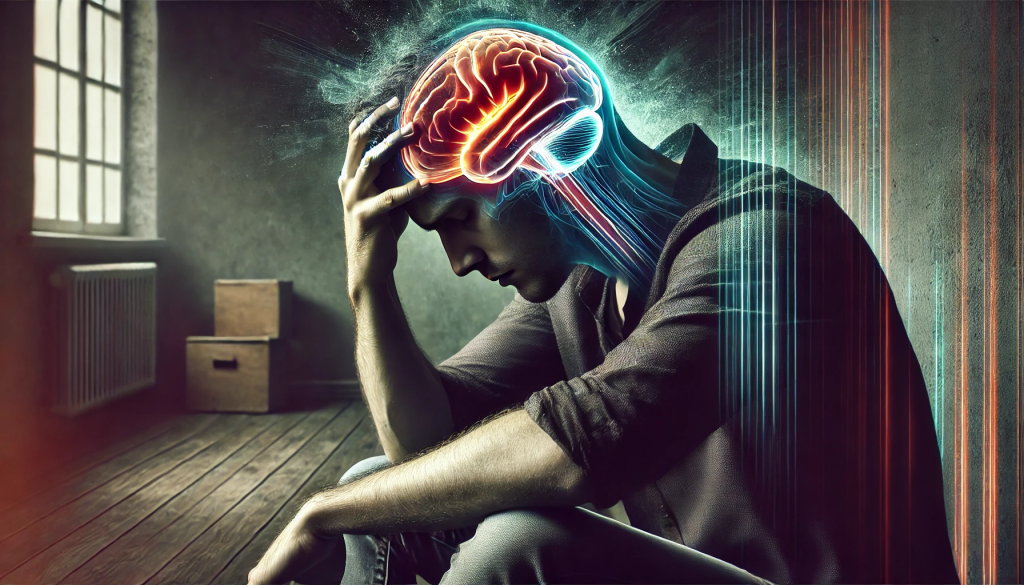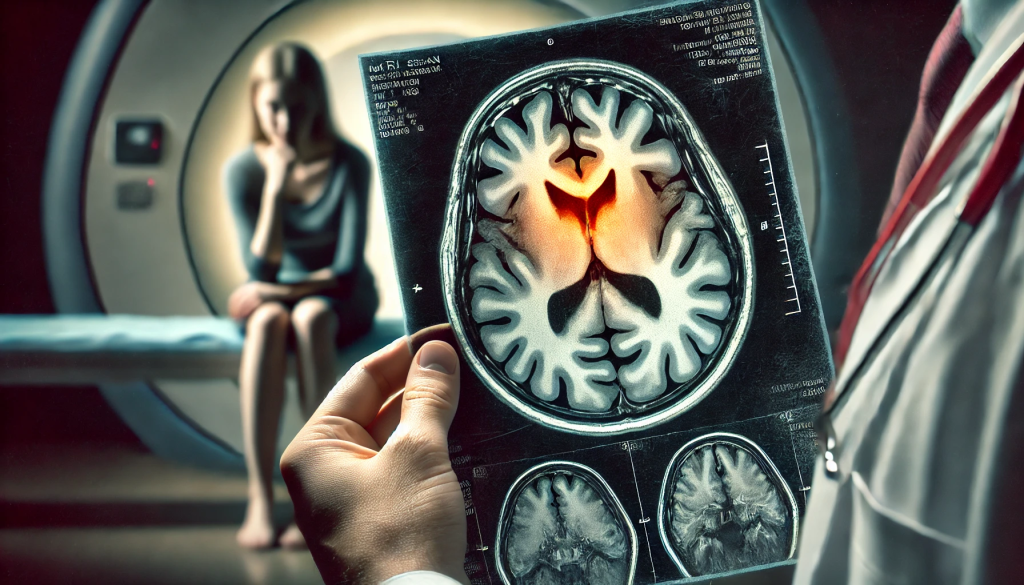When a Headache Is More Than Just a Headache
Teddi Mellencamp, widely recognized for her role on The Real Housewives of Beverly Hills and her career as a fitness coach, never imagined that persistent headaches could lead to a brain tumor diagnosis. Like many individuals, she initially attributed the discomfort to stress, dehydration, or lack of sleep. However, as her symptoms of a brain tumor worsened, she sought medical advice—a decision that likely saved her life.
Her journey serves as a stark reminder of the importance of early detection of brain tumors. Recognizing the warning signs of a brain tumor and acting promptly can significantly increase the chances of successful brain tumor treatment and survival. But how can we distinguish between a routine headache and a symptom of brain cancer?
In this article, we’ll explore:
✅ Common brain tumor symptoms vs. regular headaches
✅ The importance of MRI scans for brain tumor diagnosis
✅ How early detection improves brain cancer survival rates
✅ Key risk factors and when to seek medical help
Understanding the signs of a brain tumor can be life-saving. If you or a loved one experiences persistent headaches, vision changes, dizziness, or memory problems, don’t ignore them. Early detection could be the difference between life and death.
Understanding Brain Tumors: A Silent Threat
A brain tumor is an abnormal growth of cells within the brain. While some tumors are benign (non-cancerous) and grow slowly, others are malignant (cancerous) and can spread aggressively. The severity of a brain tumor depends on its type, size, location, and growth rate.

Types of Brain Tumors
- Primary Brain Tumors – Originate within the brain (e.g., gliomas, meningiomas, pituitary tumors).
- Secondary (Metastatic) Brain Tumors – Originate elsewhere in the body and spread to the brain (e.g., from lung, breast, or melanoma cancers).
Key Statistics on Brain Tumors in the U.S.
| Statistic | Data |
|---|---|
| Annual New Brain Tumor Cases | ~94,390 (2023, per CBTRUS) |
| Malignant Brain Tumor Cases | ~26,940 (2023, per CBTRUS) |
| Most Common Type | Meningiomas (39% of cases) |
| 5-Year Survival Rate (All Types) | ~36% (malignant), ~91% (benign) |
| Pediatric Brain Tumor Cases | ~4,630 annually (leading cause of cancer death in children) |
| Average Age at Diagnosis | ~60 years (varies by type) |
| Gender Prevalence | Slightly more common in men |
These statistics highlight the significant burden of brain tumors, making awareness and early detection crucial.
Early Warning Signs: When to Seek Medical Attention
Many people experience headaches, but not all headaches indicate a serious medical condition. However, persistent or unusual headaches should never be ignored.
Signs That a Headache May Be a Brain Tumor Symptom
- Chronic and Worsening Headaches – Unlike tension headaches, tumor-related headaches often worsen over time and do not respond well to standard pain relievers.
- Vision Problems – Blurred vision, double vision, loss of peripheral vision, or unexplained eye pain may indicate pressure on the optic nerves.
- Cognitive Changes – Memory loss, confusion, difficulty concentrating, or trouble finding words.
- Dizziness and Balance Issues – Frequent episodes of unsteadiness, lightheadedness, or an increased tendency to stumble.
- Speech Difficulties – Slurred speech or difficulty articulating words.
- Seizures – New-onset seizures without a history of epilepsy are a major red flag.
- Unexplained Fatigue – Feeling extremely tired despite adequate rest.
🔬Key Takeaway: If you or someone you know experiences these symptoms persistently, seek medical attention as soon as possible.
Preventive Measures to Reduce Brain Tumor Risk
While the exact causes of brain tumors remain unclear, there are steps that may help lower the risk:

✅ Limit Radiation Exposure – Avoid unnecessary radiation, including excessive use of mobile phones and other sources of electromagnetic waves.
✅ Healthy Diet – Consuming antioxidants, vitamins, and minerals supports brain cell protection.
✅ Regular Physical Activity – Exercise improves blood circulation and overall health.
✅ Avoid Toxins – Minimize exposure to harmful chemicals such as pesticides and air pollution.
✅ Manage Stress Levels – Chronic stress can negatively impact brain health.
✅ Routine Medical Checkups – Regular screenings can help detect abnormalities at an early stage.
Scientifically Proven Nutrients and Vitamins for Brain Tumor Prevention
While no supplement can fully prevent brain tumors, scientific research has identified key nutrients that may offer protective effects by reducing inflammation and supporting brain health.
Key Nutrients and Their Role in Brain Tumor Prevention
✅ Vitamin D – Studies suggest that maintaining adequate vitamin D levels is associated with a reduced risk of malignant tumors, including gliomas.
✅ Omega-3 Fatty Acids – Found in fish, flaxseeds, and chia seeds, these healthy fats have proven anti-inflammatory effects that may lower tumor growth risk.
✅ Curcumin – The active compound in turmeric possesses strong antioxidant and anti-cancer properties, blocking molecular pathways involved in tumor formation.
✅ Resveratrol – This antioxidant, present in red grapes and berries, is known for its neuroprotective benefits and potential to prevent cancerous growths.
✅ Folic Acid (Vitamin B9) – Research indicates that adequate folate levels can help prevent DNA damage, a critical factor in tumor development.
✅ Sulforaphane – A compound found in broccoli, Brussels sprouts, and cauliflower, shown to stimulate detoxifying enzymes and protect cells from mutations.
Additional Measures
🔹 Maintaining healthy levels of antioxidants (vitamin C, vitamin E, selenium) reduces oxidative stress linked to tumor development.
🔹 Avoiding ultra-processed foods and excessive sugar intake helps control inflammation.
🔹 Regular physical activity and a balanced diet contribute to immune system strength and cellular protection.
These nutrients are not a guaranteed prevention method, but incorporating them into a daily diet may contribute to brain cell health and DNA protection, potentially reducing the risk of brain tumors.
The Power of Early Detection: Why It Saves Lives
The survival rate for brain tumors is significantly higher when diagnosed early. According to the American Brain Tumor Association (ABTA):
| Stage at Diagnosis | 5-Year Survival Rate |
| Early Detection (Before Symptoms Become Severe) | 90%+ |
| Moderate Progression | 60% – 80% |
| Late-Stage Diagnosis | 30% or Lower |
Early diagnosis allows for a broader range of treatment options, increases survival rates, and improves quality of life.
How to Ensure Early Detection
✅ Listen to Your Body – If something feels off, don’t ignore it.
✅ Regular Health Screenings – MRI scans, neurological tests, and eye exams can help detect abnormalities early.
✅ Know Your Family History – Genetic predisposition may increase risk.
✅ Maintain a Healthy Lifestyle – While not a guaranteed prevention method, reducing inflammation and stress supports overall brain health.
Treatment Options: What Comes Next After Diagnosis?
Once diagnosed, the treatment path depends on several factors, including tumor type, location, and progression.
Common Brain Tumor Treatment Methods

- 🔬 Surgery – Often the first option if the tumor is accessible.
- 💊 Radiation Therapy – Uses high-energy waves to destroy tumor cells.
- 🧪 Chemotherapy – Drugs that kill or slow down cancerous cells.
- 🧠 Targeted Therapy – Newer treatments that attack specific tumor genes or proteins.
- 🔬 Immunotherapy – Emerging treatments that use the body’s immune system to fight tumors.
The best treatment approach is typically a combination of these methods, determined by a team of specialists.
Teddi Mellencamp’s Advocacy: Spreading Awareness to Save Lives
Since her diagnosis, Teddi Mellencamp has used her platform to emphasize the importance of early detection. Her message is clear: Don’t ignore persistent headaches or neurological symptoms. Advocate for your health. Seek medical help when something feels wrong.
Her story underscores a powerful truth: headaches aren’t always just headaches.
Key Takeaways from Her Journey:
- Early action can save lives.
- Routine health check-ups are essential.
- Medical advancements improve outcomes, but awareness is key.
Final Thought: Your Health Is in Your Hands
Brain tumors remain a significant health threat, but early detection and prompt treatment can improve outcomes dramatically. If you or a loved one experience persistent, unexplained symptoms, don’t wait—get checked by a medical professional.
















